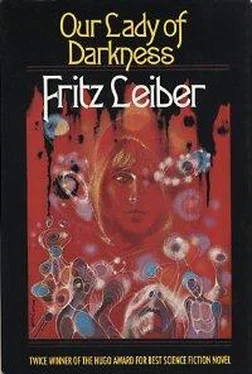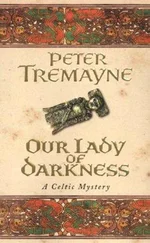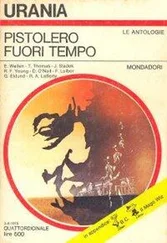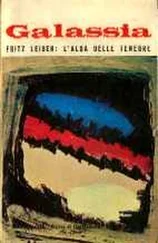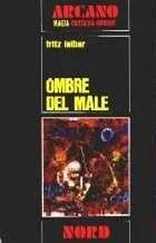“Yes, wasn’t it?” Byers agreed. “They bound it to the neck of the canister with heavy copper wire. The fourth person—he even carried the ashes—was Clark. I thought that would surprise you. They’d got in touch with him in Auburn and he’d come back just for that night. It shows, come to think of it, that Clark couldn’t have known about the curse—or does it? Anyhow, the little burial detail set forth from Klaas’s place just after dark. It was a clear night and the moon was gibbous, a few days before full—which was a good thing, as they had some climbing to do where there were no street lights.”
“Just the four of them, eh?” Franz prompted when Byers paused.
“Odd you should ask that,” Byers said. “After it was all over, Hammett asked Ricker, ‘Who the devil was that woman who stayed in the background?—some old flame of his? I expected her to drop out when we got to the rocks, or else join us, but she kept her distance all the way.’ It gave Ricker quite a turn—for he, as it happened, hadn’t glimpsed anyone. Nor had Klaas or Smith. But Hammett stuck to his story.”
Byers looked at Franz with a sort of relish and finished rapidly. “The burial went off without a hitch, though they needed the post-digger—the ground was hard. The only thing lacking was the TV tower—that fantastic cross between a dressmaker’s dummy and a Burmese pagoda in a feast of red lanterns—to lean down through the night and give a cryptic blessing. The spot was just below a natural rock seat that de Castries had called the Bishop’s Seat after the one in Poe’s ‘Gold Bug’ story, and just at the base of that big rock outcropping that is the summit of Corona Heights. Oh, incidentally, another of his whims they gratified—he was burned wearing a bathrobe he’d worn to tatters—a pale old brown one with a cowl.”
Franz’s eyes, engaged in one of their roving all-inspections, got the command to check the glooms and shadows not only for a pale, blank, triangular face with restless snout, but also for the thin, hawkish, ghostly one, tormented and tormenting, murder-bent, of a hyperactive old man looking like something out of Doré’s illustrations of Dante’s Inferno . Since he’d never seen a photograph of de Castries, if any existed, that would have to do.
His mind was busy assimilating the thought that Corona Heights was literally impregnated with Thibaut de Castries. That both yesterday and today he had occupied for rather long periods of time what must almost certainly be the Bishop’s Seat of the curse, while only a few yards below in the hard ground were the essential dusts (salts?) and the black ring. How did that go in the cipher in Poe’s tale? “Take a good glass in the Bishop’s Seat…” His glasses were broken, but then he hardly needed them for this short-range work. Which were worse—ghosts or paramentals?—or were they, conceivably, the same? When one was simply on watch for the approach of both or either, that was a rather academic question, no matter how many interesting problems it posed about different levels of reality. Somewhere, deep down, he was aware of being angry, or perhaps only argumentative.
“Turn on some lights, Donaldus,” he said in a flat voice.
“I must say you’re taking it very coolly,” his host said in slightly aggrieved, slightly awed tones.
“What do you expect me to do, panic? Run out in the street and get shot?—or crushed by falling walls? or cut by flying glass? I suppose, Donaldus, that you delayed revealing the exact location of de Castries’s grave so that it would have a greater dramatic impact, and so be truer, in line with your theory of the identity of reality and art?”
“Exactly! You do understand, and I did tell you there would be a ghost and how appropriately the astrological graffiti served as Thibaut’s epitaph, or tomb decor. But isn’t it all so very amazing , Franz? To think that when you first looked from your window at Corona Heights, Thibaut de Castries’s mortal remains unknown to you—”
“Turn on some lights,” Franz repeated. “What I find amazing, Donaldus, is that you’ve known about paramental entities for many years, and about the highly sinister activities of de Castries and the suggestive circumstances of his burial, and yet take no more precautions against them than you do. You’re like a soldier dancing the light fantastic in no-man’s-land. Always remembering that I, or you, or both of us may at this moment be totally insane. Of course, you learned about the curse only just now, if I can trust you. And you did bolt the door after I came in. Turn on some lights!”
Byers complied at last. A dull gold refulgence streamed from the large globular shade suspended above them. He moved to the front hall, somewhat reluctantly, it appeared, and flicked a switch, then to the back of the living room, where he did the same and then busied himself opening another bottle of brandy. The windows became dark rectangles netted with gold. Full night had fallen. But at least the shadows inside had been banished.
All this while he was saying in a voice that had grown rather listless and dispirited now that his tale had been told, “Of course you can trust me, Franz. It was out of consideration for your own safety that I didn’t tell you about de Castries. Until today, when it became clear you were into the business, like it or not. I don’t go babbling about it all, believe me. If I’ve learned one thing over the years, it’s that it’s a mercy not to tell anyone about the darker side of de Castries and his theories. That’s why I’ve never even considered publishing a monograph about the man. What other reason could I have for that?—such a book would be brilliant. Fa Lo Suee knows all—one can’t hide anything from a serious lover—but she has a very strong mind, as I’ve suggested. In fact, after you called this morning, I suggested to her as she was going out that if she had some spare time she have another look for the bookstore where you bought the journal—she has a talent for such problems. She smiled and said that, as it happened, she’d been planning to do just that.
“Also,” he went on, “you say I take no precautions against them, but I do, I do! According to Klaas and Ricker the old man once mentioned three protections against ‘undesirable influences’: silver , old antidote to werewolfry (another reason I’ve encouraged Fa Lo Suee in her art), abstract designs , those old attention-trappers (hopefully the attention of paramentals too—hence all the mazelike arabesques you see about you), and stars , the primal pentagram—it was I, going there on several cold dawns, when I’d be sure of privacy, who sprayed most of those astrologic graffiti on Corona Heights!”
“Donaldus,” Franz said sharply, “you’ve been a lot deeper and more steadily into this all along than you’ve told me—and your girlfriend too, apparently.”
“Companion,” Byers corrected. “Or, if you will, lover. Yes, that’s right—it’s been one of my chief secondary concerns (primary now) for quite a few years. But what was I saying? Oh, yes, that Fa Lo Suee knows all. So did a couple of her predecessors—a famous interior decorator and a tennis star who was also an actor. Clark, Klaas and Ricker knew—they were my source—but they’re all dead. So you see I do try to shield others—and myself up to a point. I regard paramental entities as very real and present dangers, about midway in nature between the atomic bomb and the archetypes of the collective unconscious, which include several highly dangerous characters, as you know. Or between a Charles Manson or Zodiac killer and kappa phenomena as defined by Meleta Denning in Gnostica . Or between muggers and elementals, or hepatitis viruses and incubi. They’re all of them things any sane man is on guard against.
Читать дальше
